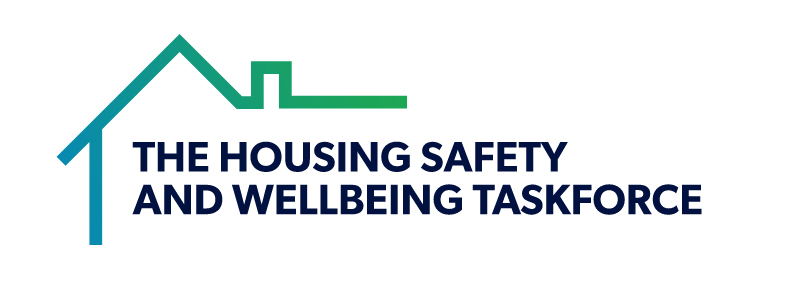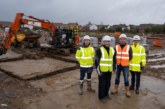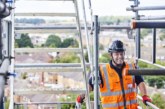
The Housing Safety and Wellbeing Taskforce launched online on the 13th January 2022. Sir Peter Bottomley MP introduced the initiative and paid tribute to the late Sir David Amess MP, who had lent valued support during the original planning phase.
The Housing Safety and Wellbeing Taskforce will bring together partners from the public, private, and charitable sector across all nations of the UK to discuss the key issues involved in creating safer homes and making recommendations for action. The Taskforce framework will enable all involved to work together collaboratively, and the organisation will be strictly noncommercial and non-partisan, committed to promoting a holistic approach to housing safety and resident wellbeing.
There will be six strands to the work of the Taskforce, each with its own ‘Ambassador’ to lead the discussions and co-ordinate activity: Health and Wellbeing, Net Zero and Decarbonisation, Resident Engagement, Housing Quality, Fire & Carbon Monoxide Safety, and Fuel Poverty. These ambassadors were announced at the launch event and are drawn from the housing, fire service, and academic sectors. They will be actively encouraging participation from any interested parties. Please check the website to find out more and get in touch directly if you would like to be involved: www.hswtaskforce.org.uk.
Since the advent of devolution over 20 years ago, domestic fire safety regulation has varied drastically across the four nations of the UK, with Scotland’s legislation now set to become the most stringent with the introduction of new standards this year. There is considerable divergence across the UK in terms of requirements for sprinkler systems, carbon monoxide detectors, and other safety measures for domestic properties.
At the launch event, The Housing Safety and Wellbeing Taskforce has unveiled a study from CEBR (Centre for Economics & Business Research) which is a seminal piece of research, combining a statistical analysis of fire incidence across the UK, a summary of the relevant legislation, and a holistic examination of the human and economic impact of fire, based on official data and a specially commissioned YouGov survey.
The study delves into recent dwelling fires and demonstrates that the rate of reduction in fire incidents, running in tandem with new regulations, has slowed in recent years. With estimated annual costs of residential fires now exceeding £1bn, the research then goes on to examine in detail the potential impact and cost savings associated with tighter restrictions.
Tina Mistry, Relationships Manager at Aico, and Taskforce Co-ordinator, commented: “Given the trends highlighted by CEBR’s excellent research, the Taskforce will hit the ground running to discuss the implications of the data and potential actions as a result. I am hugely excited by the cross-sector, cross-party support we’ve received for the Housing Safety and Wellbeing Taskforce, and hope to forge a new consensus to address the vital priority of making everyone feel safer in their own homes.”
Paul Dockerill, Director of Energy & Programme Manager at whg, added: “It’s a huge honour to be appointed as the Ambassador for the Resident Engagement Task. Now more than ever we need to work with our customers and create a culture where residents are able to raise any concerns and feel empowered to contribute to the future of their homes and
communities. The Housing Safety and Wellbeing Taskforce is a really exciting initiative that will help us do just that, bringing social housing landlords and their customers together, so that we are able to deliver the resident engagement strategies of the social housing white paper.”








